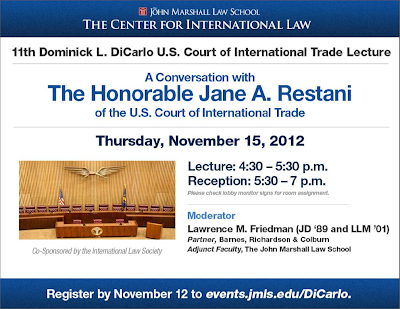Classification Litigation Can be Complex
Samsung International, Inc. v. U.S . proves that point. If you are interested in Samsung litigation that does not involve Apple, read on. At its base, this is a case about whether plasma televisions and video monitors made in Mexico are entitled to be treated as originating under the North American Free Trade Agreement. If so, they may enter the United States free of duty and merchandise processing fee. The problem for Samsung is that the imported units include an assembly from Korea that consists of a plasma flat panel and various support electronics. Under the relevant NAFTA rules of origin, if that non-originating Korean assembly is classifiable as a "flat panel screen assembly" of 8529.90.53 in the HTSUS, then it fails to satisfy the tariff shift requirement of the NAFTA rule of origin. So, the question is whether two specific configurations of subassemblies are FPSA's. It turns out that is a complicated question because FPSA is not defined in the tariff nor in t...

